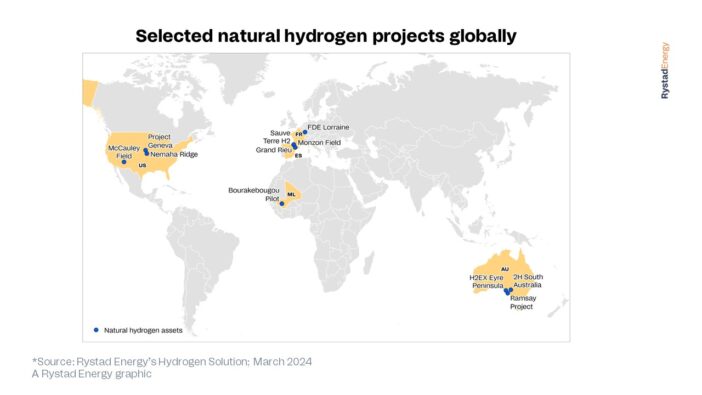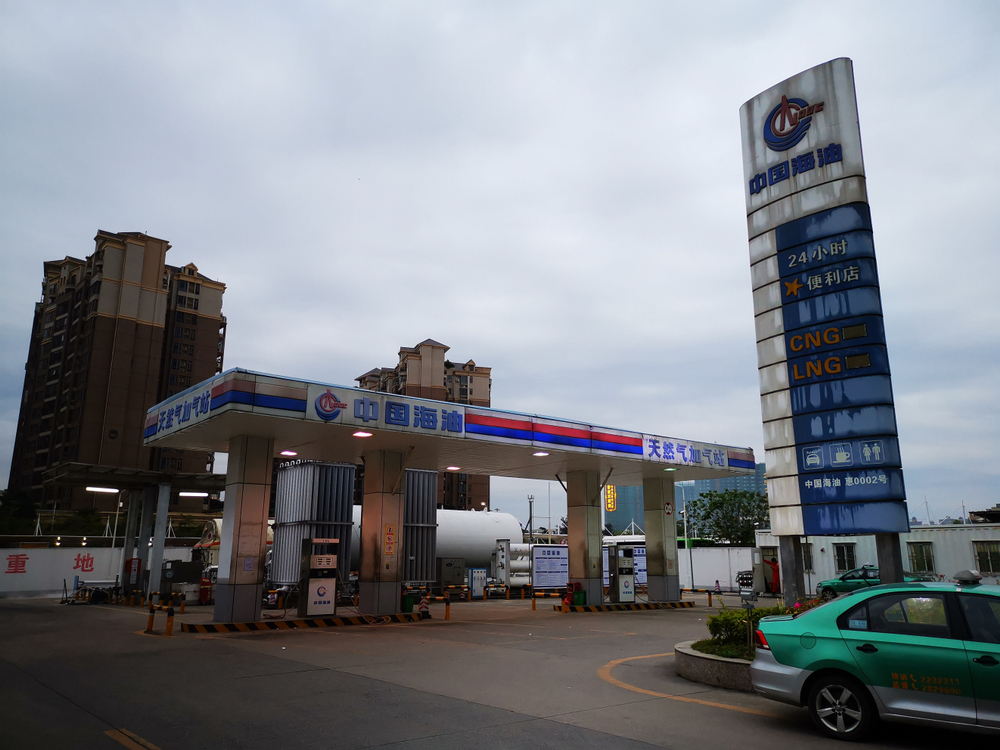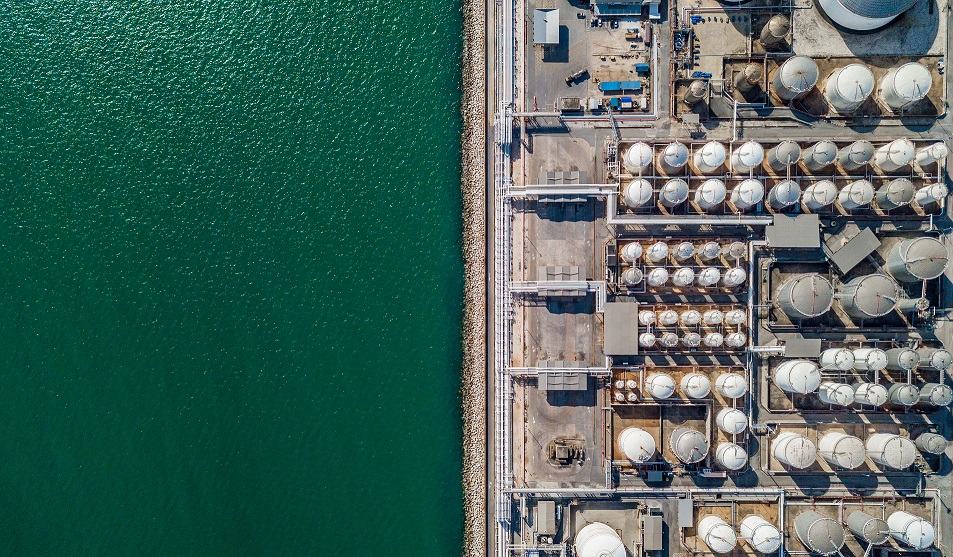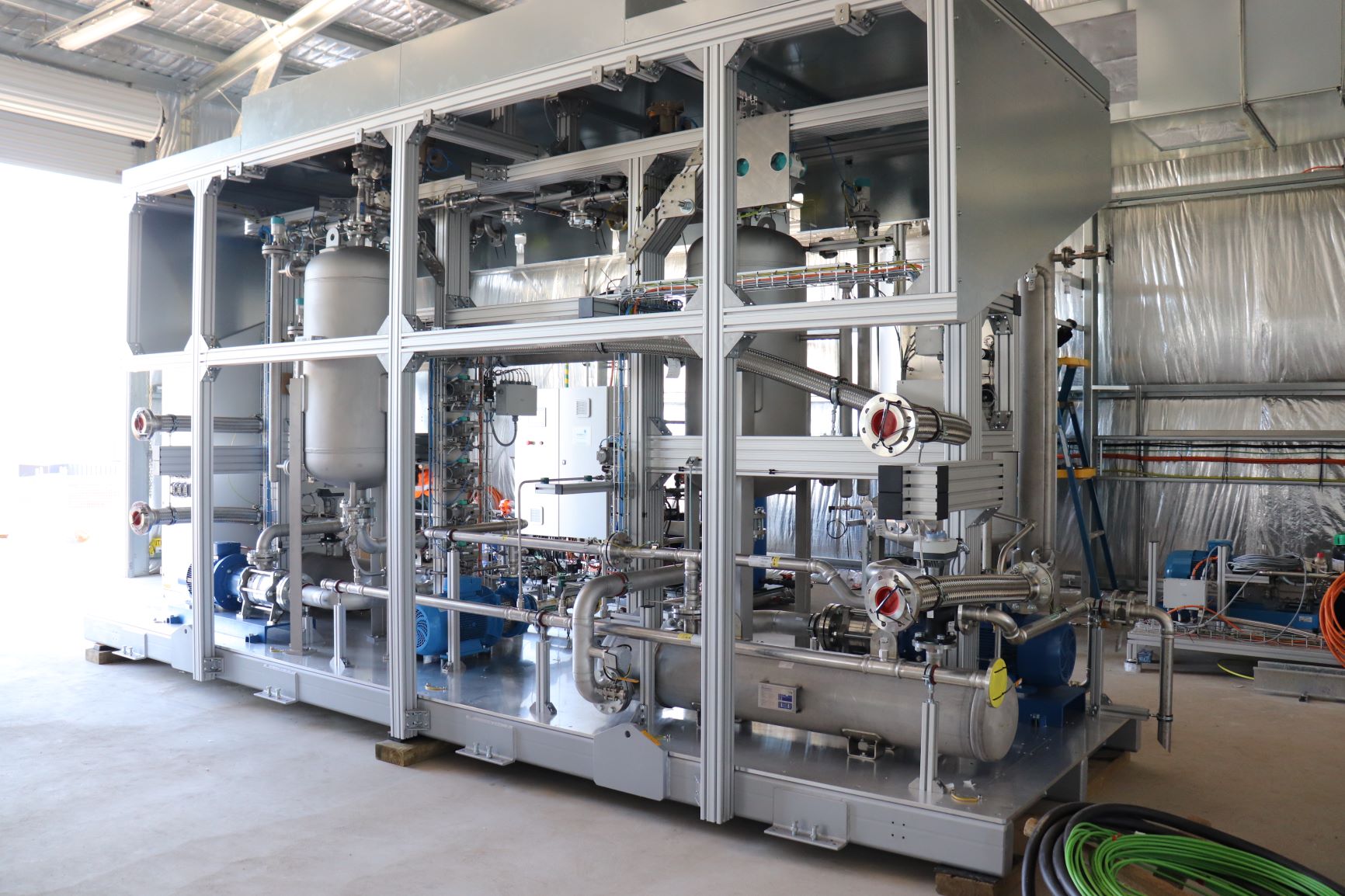The buzz around natural hydrogen – dubbed white or gold hydrogen – is gaining global momentum as a potential gamechanger in the hunt for cost-effective, low-carbon energy sources. Rystad Energy research shows that at the end of last year, 40 companies were searching for natural hydrogen deposits, up from just 10 in 2020. Currently, exploratory efforts are underway in Australia, the US, Spain, France, Albania, Colombia, South Korea and Canada.
One of the most promising elements of white hydrogen is its cost advantage over other forms of hydrogen due to its natural occurrence. Grey hydrogen, produced from fossil fuels, costs less than $2 per kilogram (kg) of hydrogen on average, while green hydrogen, produced using renewable electricity, is currently more than three times pricier. The cost of renewable hydrogen is expected to come down as electrolyzer pricing falls in the coming years, and yet, white hydrogen would still be cheaper.
At present, Canada-based producer Hydroma extracts white hydrogen at an estimated cost of $0.5 per kg. Depending on the deposit’s depth and purity, projects in Spain and Australia aim for a cost of about $1 per kg, solidifying white hydrogen’s price competitiveness.
In addition to the cost advantage, white hydrogen can also have a low carbon intensity. At a hydrogen content of 85% and minimal methane contamination, the carbon intensity is around 0.4 kg carbon dioxide equivalent (CO2e) per kg hydrogen gas (H2) – including embodied emissions and hydrogen emissions. At 75% hydrogen and 22% methane, the intensity rises to 1.5 kg CO2e per kg H2.
“Although still in its infancy with lots of uncertainty, white hydrogen has the potential to be a gamechanger for the clean hydrogen sector as an affordable, clean natural resource, thereby shifting the role of hydrogen from an energy carrier to part of the primary energy supply. However, the actual size of the reserves is still unclear, and the transportation and distribution challenges of hydrogen remain”, says Minh Khoi Le, Head of Hydrogen Research at Rystad.

Through the US Inflation Reduction Act, companies are eligible to receive production tax credits (PTC) when the lifecycle carbon intensity is below 4 kg CO2e per kg H2. The highest PTC tier grants $3 per kg if hydrogen production meets the carbon intensity threshold of 0.45 kg CO2e per kg H2. As such, low-carbon white hydrogen production in the US could be eligible for the highest PTC, making it appealing for producers.
Despite the first accidental discovery that occurred approximately 37 years ago in Mali, the accumulation of hydrogen underground was previously thought to be unlikely due to hydrogen’s ability to seep through rock layers. However, new equipment, such as hydrogen-sensing gas probes, are now available to detect dissolved hydrogen in rock formations at depths of up to 1,500 meters. These probes use spectrometers to measure and analyze dissolved gases in deep boreholes. Researchers are currently developing probes that can reach deeper depths, up to 3,000 meters underground.
White hydrogen is mainly produced through natural reactions, such as serpentinization, where water reacts with iron-rich minerals at elevated temperatures. Enhanced serpentinization using catalysts such as magnetite could help to accelerate natural hydrogen-producing reactions.
Radiolysis of water is another source of natural hydrogen. This process involves radioactive elements within the Earth’s crust splitting water due to ionizing radiation.
The South Australian government added hydrogen to its list of regulated substances in 2021. This led to many companies applying for exploration permits in the region, with Gold Hydrogen securing a five-year license to develop its Ramsay project. The company found high hydrogen concentrations of up to 86% during drilling in late 2023. Gold Hydrogen plans to conduct further drilling in 2024 and launch a pilot feasibility study.
Governments in countries like France and the US have promised financial support to expedite the exploration and extraction of naturally occurring hydrogen projects. Currently, there is only one operational white hydrogen project in Bourakebougou, Mali, producing around 5 tonnes of hydrogen annually. This small-scale project has been in operation for a decade, providing power to a village. Other projects in various parts of the world are still at an early exploration stage, with the first European natural hydrogen production expected to start in 2029.





